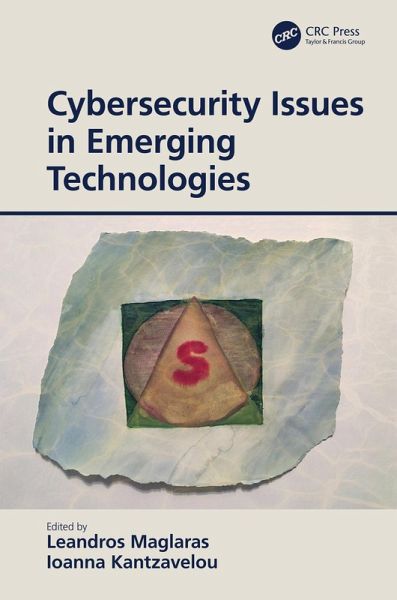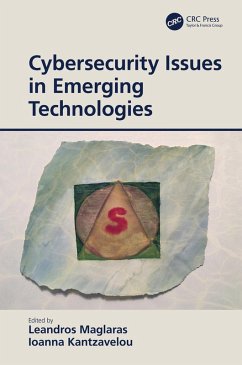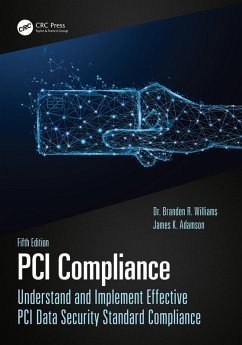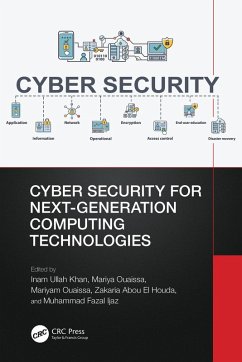
Cybersecurity Issues in Emerging Technologies (eBook, PDF)
Versandkostenfrei!
Sofort per Download lieferbar
45,95 €
inkl. MwSt.
Weitere Ausgaben:

PAYBACK Punkte
23 °P sammeln!
The threat landscape is evolving with tremendous speed. We are facing an extremely fast-growing attack surface with a diversity of attack vectors, a clear asymmetry between attackers and defenders, billions of connected IoT devices, mostly reactive detection and mitigation approaches, and finally big data challenges. The clear asymmetry of attacks and the enormous amount of data are additional arguments to make it necessary to rethink cybersecurity approaches in terms of reducing the attack surface, to make the attack surface dynamic, to automate the detection, risk assessment, and mitigation,...
The threat landscape is evolving with tremendous speed. We are facing an extremely fast-growing attack surface with a diversity of attack vectors, a clear asymmetry between attackers and defenders, billions of connected IoT devices, mostly reactive detection and mitigation approaches, and finally big data challenges. The clear asymmetry of attacks and the enormous amount of data are additional arguments to make it necessary to rethink cybersecurity approaches in terms of reducing the attack surface, to make the attack surface dynamic, to automate the detection, risk assessment, and mitigation, and to investigate the prediction and prevention of attacks with the utilization of emerging technologies like blockchain, artificial intelligence and machine learning.
This book contains eleven chapters dealing with different Cybersecurity Issues in Emerging Technologies. The issues that are discussed and analyzed include smart connected cars, unmanned ships, 5G/6G connectivity, blockchain, agile incident response, hardware assisted security, ransomware attacks, hybrid threats and cyber skills gap. Both theoretical analysis and experimental evaluation of state-of-the-art techniques are presented and discussed. Prospective readers can be benefitted in understanding the future implications of novel technologies and proposed security solutions and techniques. Graduate and postgraduate students, research scholars, academics, cybersecurity professionals, and business leaders will find this book useful, which is planned to enlighten both beginners and experienced readers.
This book contains eleven chapters dealing with different Cybersecurity Issues in Emerging Technologies. The issues that are discussed and analyzed include smart connected cars, unmanned ships, 5G/6G connectivity, blockchain, agile incident response, hardware assisted security, ransomware attacks, hybrid threats and cyber skills gap. Both theoretical analysis and experimental evaluation of state-of-the-art techniques are presented and discussed. Prospective readers can be benefitted in understanding the future implications of novel technologies and proposed security solutions and techniques. Graduate and postgraduate students, research scholars, academics, cybersecurity professionals, and business leaders will find this book useful, which is planned to enlighten both beginners and experienced readers.
Dieser Download kann aus rechtlichen Gründen nur mit Rechnungsadresse in A, B, BG, CY, CZ, D, DK, EW, E, FIN, F, GR, HR, H, IRL, I, LT, L, LR, M, NL, PL, P, R, S, SLO, SK ausgeliefert werden.













